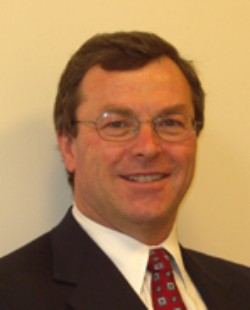

|
Hatton Group Member
 |
T. Alan Hatton
Ralph Landau Professor
Director, David H. Koch School of Chemical Engineering Practice
Department of Chemical Engineering
Massachusetts Institute of Technology
Room: 66-309
77 Massachusetts Ave.
Cambridge, MA 02139 USA
Phone: (617) 253-4588
Fax: (617) 253-8723
E-mail: tahatton@mit.edu
Web Site: http://web.mit.edu/hattongroup
|
|
Personal Information and Interests
Education:
Ph.D., University of Wisconsin, 1981
M.Sc.Eng, University of Natal, Durban, South Africa, 1976
B.Sc.Eng, University of Natal, Durban, South Africa, 1972
Honors and Awards :
Founding Fellow, American Institute for Medical and Biological Engineering, 1992
Merck Faculty Development Award, 1989
Class of '22 Career Development Chair, 1988
Presidential Young Investigator Award, National Science Foundation, 1985
Everett Moore Baker Award for Excellence in Undergraduate Teaching, MIT, 1983
|
Academic Interests
Research Interests: transport phenomena, separation processes,
microemulsions, colloids
|
Research Description
The thermodynamic and transport properties of organized molecular assemblies and colloidal suspensions can be
important in a wide range of fields - synthesis of semiconductor particles, ceramics processing, biocatalysis in
structured media, cell membrane transport, separations, food processing, tertiary oil recovery, drug delivery systems,
cosmetics, phase transitions, etc. Our current focus is on understanding the physicochemical phenomena affecting
these processes through analyses of the solute/polymer/micelle complexes backed up by a range of experimental probes,
including spectroscopic analysis, and light, small-angle x-ray and neutron scattering. Also available are sophisticated
experimental techniques for the measurement of fast dynamic processes, such as state-of-the-art iodine laser temperature
jump and concentration jump methods. Typical projects in this area include the effects of curvature in microemulsions on
interfacial solubilization and transport properties, the mechanisms of interfacial solubilization of proteins and other
hydrophilic solutes by reversed micelles, the molecular reorganization process in microemulsion systems following
temperature and concentration perturbations, and the dynamics of polymer-surfactant interactions.
We have a significant interest in the role that these colloidal dispersions can play in mediating solvent properties for
enhancing separation and reaction processes in the chemical, metallurgical and biochemical industries. A major thrust
of our research program, thus, is to explore novel techniques to optimize solvents for specific applications, and to
characterize them in terms of the fundamental molecular processes responsible for the solvation properties of the structured
solvents. The primary emphasis is on colloidal surfactant and polymer aggregates such as micelles and reversed micelles
which provide a nonisotropic, microstructured environment for the selective interaction with targeted solutes in an otherwise
homogeneous macrophase. We have, for instance, used reversed micelles to solubilize polar solutes such as proteins and amino
acids in organic solvent extractants, block copolymer micelles for the removal of trace contaminants from surface and
groundwaters, and two-phase aqueous polymer solutions for the selective partitioning of proteins. We are now also
investigating ways in which we can tailor solvents for specific applications while at the same time reducing their propensity to
enter the environment with air emissions and aqueous discharge streams. Colloidal magnetic fluids are being investigated as
suitable reaction and separation media, as they can be heated effectively and more uniformly by microwave absorption of
energy, and their flow can be directed by suitable application of magnetic fields, allowing novel separation and reaction
configurations to be implemented.
|
|
|